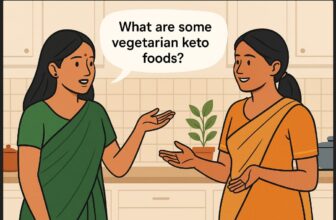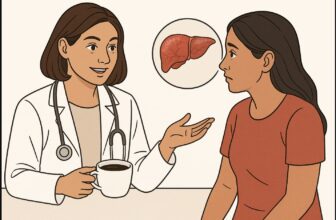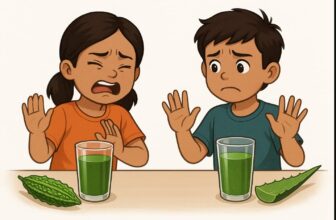Protein is an essential macronutrient for muscle growth and repair, especially for those looking to build muscle mass through bodybuilding. While many associate protein with animal-based products like eggs, chicken, and fish, vegetarians in India can easily meet their protein needs through a variety of plant-based foods. The key is choosing protein-rich foods and combining them effectively to ensure you are getting a complete profile of essential amino acids.
For vegetarians in India, achieving the right protein intake is crucial but not difficult. India offers a variety of plant-based protein sources, many of which are packed with other nutrients like vitamins, minerals, and fiber, all of which contribute to overall health and muscle function.
Top 10 Vegetarian Protein Sources in India:
1. Lentils (Dal)
Protein Content: 9 grams per 100 grams (cooked)
Lentils are a cornerstone of Indian cuisine and a significant source of plant-based protein. Varieties such as moong dal, masoor dal, and toor dal are common in every Indian household. Lentils provide approximately 9 grams of protein per 100 grams when cooked and are a rich source of fiber, iron, and folate, all of which are essential for overall health and muscle function.
Lentils also contain complex carbohydrates, making them a great energy source for those who engage in regular workouts. The fiber content in lentils helps regulate digestion and promotes satiety, which can be useful for those looking to control calorie intake while building muscle.
Tips for Including Lentils in Your Diet:
- Prepare classic dal with spices like cumin, garlic, turmeric, and ginger to enhance both flavor and health benefits.
- Combine lentils with whole grains like rice or quinoa for a complete protein source.
- Moong dal is particularly easy to digest and can be made into light soups or stews, ideal for post-workout recovery.
2. Chickpeas (Chole)
Protein Content: 8.9 grams per 100 grams (cooked)
Chickpeas, or chole, are not only a great source of protein but also packed with fiber, making them an excellent choice for bodybuilding. With about 8.9 grams of protein per 100 grams (cooked), chickpeas provide essential nutrients like magnesium, iron, and zinc, which support muscle function and recovery.
Chickpeas are also rich in antioxidants, which help reduce inflammation in the body, a common issue for athletes and bodybuilders. Additionally, chickpeas have a low glycemic index, which makes them a good choice for maintaining energy levels and controlling blood sugar during workouts.
Tips for Including Chickpeas in Your Diet:
- Prepare chickpea curry with tomatoes, onions, and Indian spices like garam masala and coriander.
- Enjoy roasted chickpeas as a crunchy snack high in protein and fiber.
- Use chickpeas in salads, or blend them to make hummus for a protein-packed dip.
3. Tofu (Soy Paneer)
Protein Content: 8 grams per 100 grams
Tofu, or soy paneer, is made from soybeans and is an excellent source of plant-based protein, offering around 8 grams of protein per 100 grams. Tofu is also rich in calcium, iron, and omega-3 fatty acids, which support muscle recovery and overall health. It’s one of the most versatile vegetarian protein sources in India and can be used in a variety of dishes.
Tofu is a complete protein, meaning it contains all nine essential amino acids that the body cannot produce on its own. This makes it a fantastic option for bodybuilders who need to ensure they’re getting a balanced amino acid profile for muscle growth and repair.
Tips for Including Tofu in Your Diet:
- Grill or sauté tofu with Indian spices like turmeric, cumin, and coriander for a flavorful meal.
- Add tofu to vegetable curries or stir-fries for a protein boost.
- Blend tofu into smoothies or make tofu-based scrambles as a breakfast option.
4. Cottage Cheese (Paneer)
Protein Content: 18 grams per 100 grams
Paneer is one of the richest sources of protein in Indian vegetarian diets, offering approximately 18 grams of protein per 100 grams. Made from curdled milk, paneer is a great source of casein, a slow-digesting protein that provides a sustained release of amino acids, which is especially helpful for muscle recovery overnight.
In addition to protein, paneer is rich in calcium, which helps strengthen bones—important for bodybuilders who engage in weight training. Paneer also provides healthy fats that contribute to muscle mass gain.
Tips for Including Paneer in Your Diet:
- Make paneer tikka or paneer butter masala as a rich, protein-packed meal.
- Add paneer cubes to vegetable curries or mix them into salads for a satisfying, protein-dense dish.
- Enjoy paneer as a snack by simply grilling it or adding it to wraps.
5. Greek Yogurt (Hung Curd)
Protein Content: 10 grams per 100 grams
Greek yogurt, or hung curd in India, is a thick, creamy dairy product rich in protein, offering about 10 grams of protein per 100 grams. Greek yogurt also contains probiotics, which improve gut health and enhance digestion, crucial for anyone with an active lifestyle.
In addition to protein, hung curd is packed with calcium, which supports bone health, and potassium, which helps regulate muscle function. It’s a fantastic post-workout food for quick muscle recovery.
Tips for Including Greek Yogurt in Your Diet:
- Add hung curd to make raita, a yogurt-based side dish that pairs perfectly with rice and curries.
- Use Greek yogurt in smoothies with fruits and nuts for an energy-boosting, protein-packed breakfast.
- Enjoy it as a dip with vegetables or mix it into baked goods to boost protein content.
6. Soybeans (Soya Beans)
Protein Content: 36 grams per 100 grams (cooked)
Soybeans are one of the most powerful protein sources in the vegetarian world, providing 36 grams of protein per 100 grams when cooked. They are a complete protein, containing all nine essential amino acids required by the body. Soybeans are also rich in fiber, omega-3 fatty acids, and iron, all of which promote muscle health and overall fitness.
Soybeans also contain isoflavones, compounds that have antioxidant properties, reducing inflammation and promoting recovery after intense workouts.
Tips for Including Soybeans in Your Diet:
- Cook soybeans in soups, curries, or add them to salads for a protein boost.
- Use soy milk in smoothies or as a dairy alternative in baking.
- Try tempeh, a fermented soy product, in stir-fries or sandwiches.
7. Green Peas (Matar)
Protein Content: 5 grams per 100 grams
Green peas are a protein-rich legume, providing around 5 grams of protein per 100 grams. They are an excellent source of vitamins A, C, and K, which support immune function and aid in muscle recovery. Peas also contain iron, magnesium, and zinc, all of which contribute to better performance in workouts and faster muscle repair.
Green peas are versatile and can be added to many dishes, making them a perfect addition to your bodybuilding diet.
Tips for Including Green Peas in Your Diet:
- Add peas to curries, pulao, or biryani for a protein-packed dish.
- Enjoy peas as a side dish or add them to your salads for extra crunch and nutrition.
- Mix them into soups or blend into smoothies for added nutrition.
8. Peanuts (Mungfali)
Protein Content: 25 grams per 100 grams
Peanuts, or mungfali, are not only rich in protein (about 25 grams per 100 grams) but also high in healthy fats, fiber, and vitamin E. These healthy fats help support muscle growth and recovery, while fiber aids in digestion.
Peanuts are calorie-dense, making them ideal for individuals looking to gain muscle mass in a healthy way.
Tips for Including Peanuts in Your Diet:
- Snack on roasted peanuts or make your own peanut butter.
- Add crushed peanuts to salads, smoothies, or yogurt for extra protein.
- Include peanuts in homemade energy bars or trail mixes for a post-workout snack.
9. Almonds (Badam)
Protein Content: 21 grams per 100 grams
Almonds are a powerhouse of protein and healthy fats, containing approximately 21 grams of protein per 100 grams. Almonds are also rich in magnesium, which supports muscle function and recovery, and vitamin E, an antioxidant that helps repair damaged muscles after workouts.
Almonds are a great source of slow-digesting protein, which helps keep your body fueled throughout the day.
Tips for Including Almonds in Your Diet:
- Snack on raw or roasted almonds throughout the day.
- Add almonds to smoothies, oats, or baked goods.
- Sprinkle chopped almonds on yogurt, fruit bowls, or salads for added texture and nutrition.
10. Rajma (Kidney Beans)
Protein Content: 8.7 grams per 100 grams (cooked)
Rajma, or kidney beans, are a great source of plant-based protein, providing approximately 8.7 grams of protein per 100 grams when cooked. Rajma is also rich in folate, iron, and potassium, which help support muscle recovery and overall energy.
Rajma pairs wonderfully with rice, creating a complete protein combination, and is a staple in many North Indian households.
Tips for Including Rajma in Your Diet:
- Prepare a classic rajma curry with Indian spices like cumin, garam masala, and coriander.
- Pair rajma with rice or roti for a wholesome, protein-packed meal.
- Enjoy rajma in salads or mixed with other legumes for added variety.
Closing Thoughts
Achieving your bodybuilding goals as a vegetarian in India is entirely possible with the right selection of plant-based protein sources. From lentils and chickpeas to paneer and soybeans, the foods mentioned in this post are not only high in protein but also packed with other essential nutrients that contribute to muscle growth and overall health.
Incorporating these 11 protein-rich foods into your daily meals will ensure that you meet your protein requirements and keep your body fueled for optimal performance. With the right balance of protein, healthy fats, and carbohydrates, you’ll be on your way to building muscle, recovering effectively, and leading a healthy, active lifestyle.





